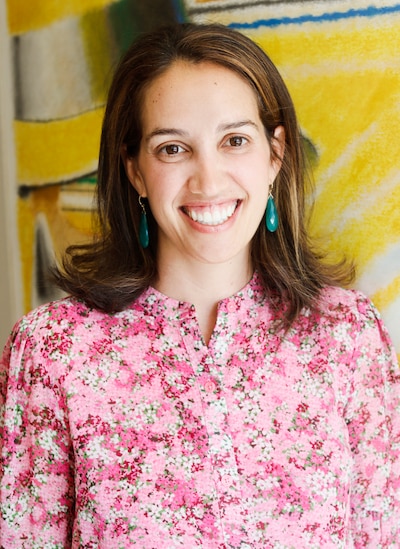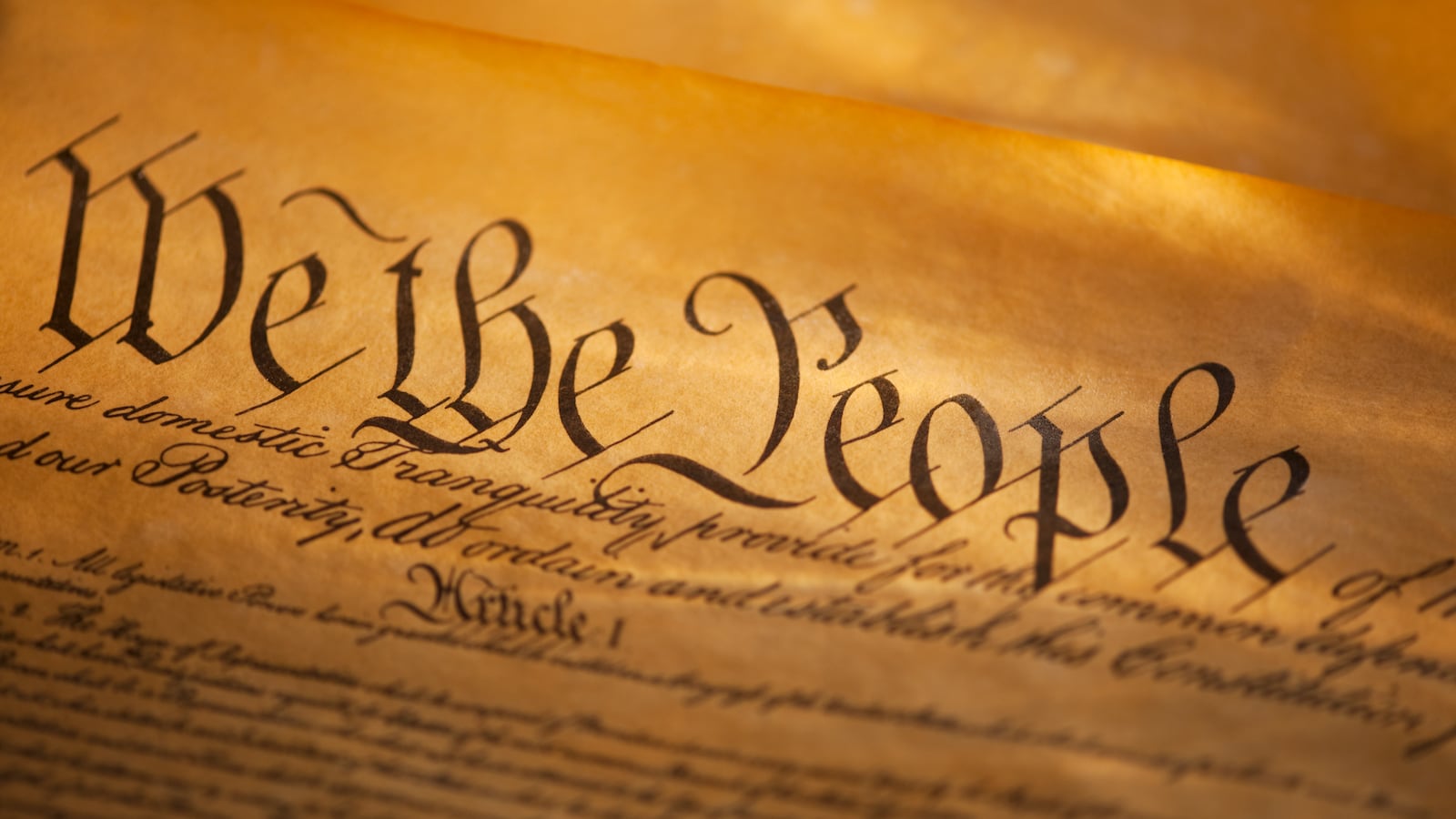When 2020 is over, educators will still teach their students about America. Following a global pandemic and a destabilizing election, teachers will walk into classrooms, many newly reopened, and face the next generation of young adults tasked with inheriting this democracy. What will they say? How will they explain the aspirations and the history, the ideals and the reality, the promise and the flaws of our country? How will they do so after so many of their students have experienced a civic rupture, a loss of faith in the institutions that should serve them?

Even before the pandemic, with the calamities it brought into sharp relief, I watched many of my students have their sense of national belonging shattered by what they experience as national rejection. For a decade, I spent my summers teaching New York City public high school students at Columbia University’s Freedom and Citizenship Program. I remember when 16-year-old Sarena came into my office terrified that she had incorrectly filled out the paperwork that would determine whether her parents could remain in the country. I remember when Melissa told me that she doubted the very idea of liberty because she had just done one too many active shooter drills, and liberty in America seems to mean the right to own a gun. I remember students named Jamal and Michael and Christina tell me, with clear and calm voices, that this country hates them, hates their people, and that they wish they could not be so scared all the time.
These are young people with strong minds and endless possibilities, but they had been brought low by the small and large chips to their dignity and sense of self-worth.
The breaking of faith in America can be as much of an American experience as the transmission of the values of freedom and equality. Today, that breaking of faith has moved into the central organ of our students’ lives: the school, an institution destabilized by the inequities confronting our society, from economic insecurity, to health care access, and, most horrifically for my own students, to the fear of state violence. This moment has created the civic education challenge and opportunity of our time.
Everywhere, the problems of older generations have been left unsolved by political institutions the young are poised to inherit. Even while facing down immense challenges, students have given our nation moments of extraordinary hope — leading the charge on environmental change, gun control, and now racial justice. But how much we ask of them is directly correlated with how little we are able to accomplish ourselves.
So how do we educate under these conditions? How do we foster a belief in this wounded American democracy that so desperately needs a new generation’s service and commitment? In an address to teachers in 1961, James Baldwin offered this advice: “I would try to make him know that just as American history is longer, larger, more various, more beautiful and more terrible than anything anyone has ever said about it, so is the world larger, more daring, more beautiful and more terrible, but principally larger — and that it belongs to him.”
In 2020, civic education must give each student the sense that they belong to this country and that the country belongs to them. It’s fundamental to democratic education in two respects: first, it gives students the feeling of self-worth that teaches them that they matter; second, it extends the experience of worthiness to a collective, letting the student know that just as they matter to their community the community must matter to them. To educate for belonging, teachers and counselors — and behind them, policymakers — first need to give students the experience of being valued in their classroom and in their community. This is not an impossible task.
It hinges on rethinking the educational movements created in the 19th and 20th century that turned the classroom into a sorting mechanism and cultivating, in its stead, an experience of the classroom as a community, where each student is deliberately given a position of true worth and respect, both by a teacher and peers, while becoming part of a greater whole. Early childhood education has done a masterful job in this arena, ensuring that young students have important rotating positions in the collective life of the classroom. It is time to creatively develop similar approaches for secondary and higher education.
In my work with Civic Spirit, an organization that supports teachers and faith communities in their efforts to prioritize civic education, I have witnessed teachers create problem-solving challenges that give each student a position of value in a collective endeavor, be it cleaning a subway station or writing a play based on Pericles’ Funeral Oration. Importantly, these assignments move students from consumers to creators, giving them the experience of understanding their own essential contribution to a common good. I have been inspired by the way educators anchor concepts such as representation or enfranchisement in the particular local history of where their students live. When a student’s town, or street, or very real moments of pride or struggle, become a part of a larger national story, the student moves from being a witness to American history to being a protagonist in American civic life.
In all of these examples, a teacher begins the process of educating for belonging by recognizing a students’ essential worth, making them feel at home in their classroom, and then moving the student from the experience of being valued as an individual to an experience of being valuable to a larger group. Belonging is an experience that flows from the center to the periphery, from the individual to the community, and then to the nation. Belonging is not the only pillar of civic education, but it is an urgent part of civic recovery after rupture. If our students do not think they belong in this country, no amount of content will ever compensate.
As an educator, I used to agonize about the imperfect inheritance I was bestowing upon my students. I sometimes worried that our country, this democracy, could never be truly worthy of them; that the world is too harsh, too dismissive, and too grossly unfair to warrant their time and affection. When I felt this way, my own teacher would remind me of the songwriter Leonard Cohen’s famous refrain: “Ring the bells that still can ring. Forget your perfect offering. There is a crack, a crack in everything. That’s how the light gets in.”
When I sit with former students who have lost faith in this country, I am humbled by the agony, by the fact that loss exists, that behind the anger and frustration is an earnest desire to live somewhere good, to uphold democratic ideals, to commit themselves to a country that believes in their importance. I return to Frederick Douglass’ 1852 speech “What to the Slave is the Fourth of July,” a speech that excoriates America for its violence, for its hypocrisy, for its unforgivable sins while still offering the refrain, “I have said that the Declaration of Independence is the ring-bolt to the chain of your nation’s destiny; so, indeed, I regard it. The principles contained in that instrument are saving principles. Stand by those principles, be true to them on all occasions, in all places, against all foes and at whatever cost.” I remind my students that to love our country’s aspirations is not to deny our country’s history, it is not to deny their own history. Rather, it is through attaching to our ideals, to freedom and to equality, that we know where we have fallen and where we must ascend.
Even in this year, especially in this year, we must remind our students that each one of them is worthy of a good life. That as Americans, “We hold these truths to be self-evident, that all men are created equal, that they are endowed by their Creator with certain unalienable Rights.” And that their political community needs them, that their government derives its “just powers from the consent of the governed.” This has been, and must continue to be, the building block for a civic education that ushers each student into a democracy that desperately needs their vitality and resolve.
Dr. Tamara Mann Tweel is the Program Director of Civic Initiatives at the Teagle Foundation. She is the co-founder of Civic Spirit and a Fellow of the Kogod Research Center at Shalom Hartman Institute of North America.



